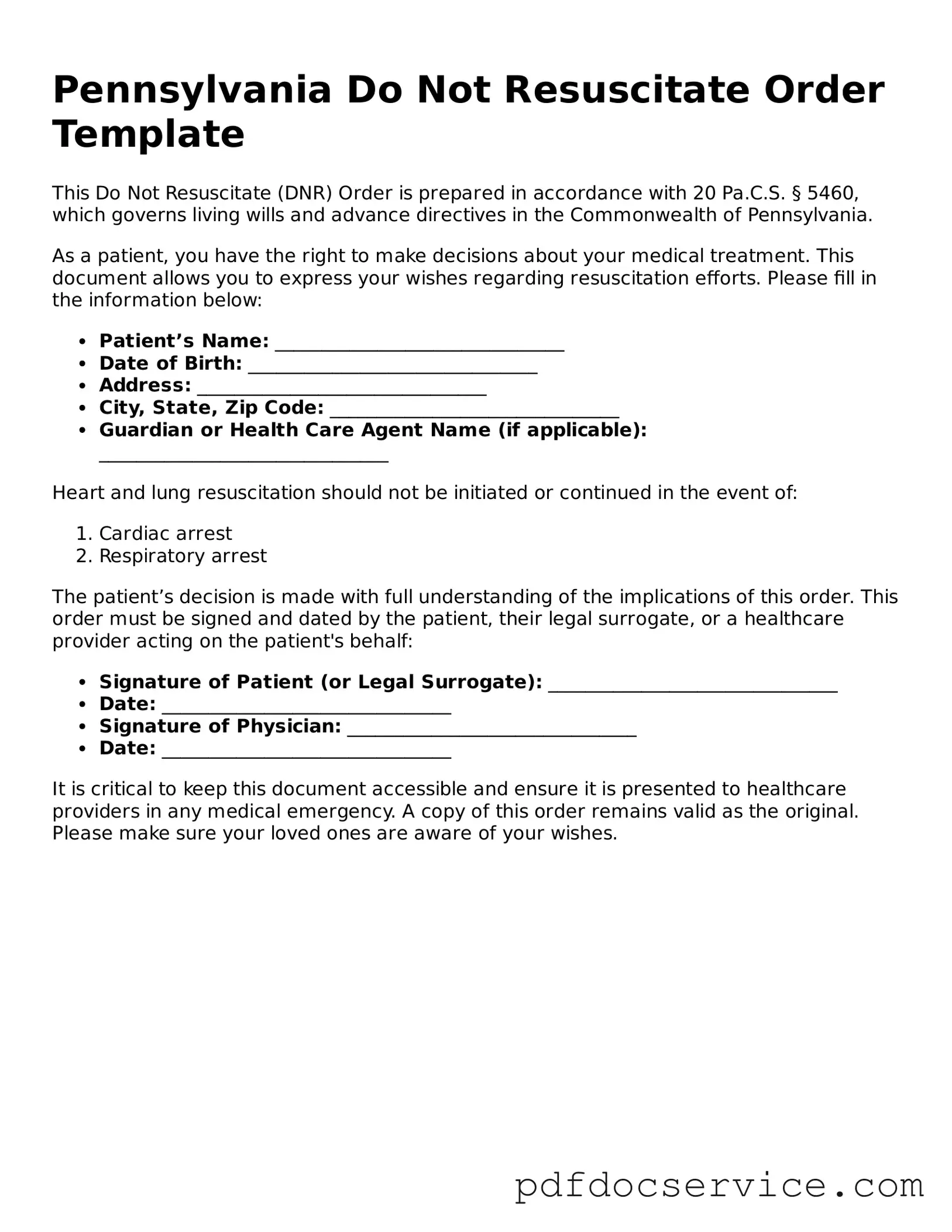Printable Do Not Resuscitate Order Template for Pennsylvania
A Pennsylvania Do Not Resuscitate Order (DNR) form is a legal document that allows individuals to express their wishes regarding resuscitation efforts in the event of a medical emergency. By completing this form, patients can ensure that their preferences for end-of-life care are respected. Understanding this form is crucial for both patients and their families as they navigate difficult healthcare decisions.
Open Do Not Resuscitate Order Editor

Printable Do Not Resuscitate Order Template for Pennsylvania
Open Do Not Resuscitate Order Editor

Open Do Not Resuscitate Order Editor
or
Get Do Not Resuscitate Order PDF
Finish the form now and be done
Finish Do Not Resuscitate Order online using simple edit, save, and download steps.